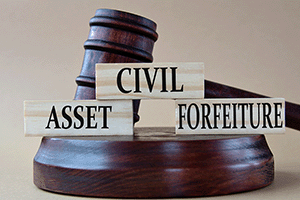Civil Warrant Search
Civil Warrants: What You Need to Know
When people hear the term “warrant”, many think of a criminal allegation, missing a court appearance, or police raids and arrests. But not all warrants are issued for these reasons. The term ‘civil’ in civil warrant refers to a non-criminal allegation where there is a dispute between two parties, an unpaid debt, or a judgement where someone owes a creditor. This is where a civil warrant comes into play, it is an important tool in the world of civil litigation and the recovery of something owed, or a determination to take back something, or even evict a person from a property. There are a multitude of reasons this is used for domestic and non-criminal legal matters that we will explore in this article.
What is a Civil Warrant?
A civil warrant is a written order by a judge, granting the authority to enforce certain rights, duties, or obligations in a civil lawsuit. Unlike criminal warrants that pertain to crimes and criminal proceedings, civil warrants relate to civil disputes often involving debts, contracts, or property disputes. They can also lead to a person’s arrest in some circumstances, such as failing to appear in court as directed by a judge’s court order or by a subpoena. These do not result in criminal convictions, but can lead to the seizure of financial resources, property, or assets, depending on the outcome of the legal battle.

Civil Bench Warrants
A civil bench warrant is typically issued by the courts when a person fails to appear in court for a scheduled civil hearing. The term ‘bench’ is in reference to the judge’s bench, which means this type of court order comes directly from the judge. If someone is served with a notice to appear in a civil court and they don’t show up, the judge can issue a civil bench warrant which summons them back to court. If this order is ignored it can lead to someone being arrested, detained and brought back to court. Civil bench warrants are more commonly issued than civil arrest warrants. The court system prefers to avoid arresting and detaining someone in civil lawsuit matter, unless that person ignores the court order which could lead to further actions and penalties. You can run a civil bench warrant search using county courthouse resources, county sheriff departments, or public record databases, depending on what online resources they have.
Civil Arrest Warrants
A civil arrest warrant, a less utilized tool in the legal system, is issued when someone fails to comply with a court order related to a civil matter. It’s not tied to a crime, or criminal allegation, but is instead linked to a person’s failure to meet a specific civil obligation such as showing up to court in an ongoing civil lawsuit. These types of arrest warrants are not common however, they can be implemented if the courts feel that a person has deliberately avoided a serious civil matter, or has fled during an ongoing civil court case. For example, if a judge orders someone to return to court in an ongoing lawsuit, and they refuse or fail to do so, the court might issue a civil arrest warrant. In some jurisdictions, these are used in cases of contempt of court, especially if a person doesn’t appear for a mandated hearing or disobeys a court order. Each state handles these differently so you will need to find out if this is an instrument that is used in the state you live in. A civil arrest warrant can also be researched through the US Courts website.
Civil Capias Warrant
This is a tool a judge uses when someone keeps ignoring their orders in non-criminal, civil court cases. It’s the court’s way of saying, “You need to come in and address this.” The main goal of a civil capias warrant is to ensure that someone shows up in court, especially when they’ve been avoiding it. It’s the legal way of making sure people face the consequences of not following a judge’s orders, which can lead to someone’s arrest if ignored. A good place to learn more about these types of civil warrants is through the Bureau of Justice online resources.
What Happens When You Ignore a Civil Warrant
Ignoring any type of civil warrant can add to the already existing complications. There are a multitude of different outcomes depending on the circumstances of the civil warrant that can lead to repossession of property, assets, arrests and having your wages garnished. There can be some very serious consequences of ignoring a civil warrant, as well a defendant not paying out on a lawsuit they lost. Here are some of the actions that can be taken against someone who ignores a civil warrant and resulting court judgment.
- Writ of Possession: This is a formal notice that is issued by the courts that gives someone, or a business, to take possession of another person’s property, also known as an eviction writ. One example of this use is when a landlord wants to evict a tenant from their property. Once the Writ of Possession is issued, it gives the landlord the right to take possession of the property and kick out the other person living there. This is often the result of many months of someone not paying their rent, or mortgage in the case of a bank owned property.
- Writ of Execution: This is issued by the courts to enforce judgements involving money or financial resources. For example, when someone wins a lawsuit for money and the losing party doesn’t pay up, the court can then issue a writ of execution to take money directly from the debtor’s bank account. It can also lead to seizing of assets to sell to pay for the recovery of the money that is owed.
- Writ of Garnishment: This is when a debtor doesn’t pay a creditor after a civil lawsuit they lost. The creditor can then request a writ of garnishment which allows a creditor to take a portion of a debtor’s wages or bank account funds to satisfy that debt. This is typically used for personal debts and not businesses.
- Writ of Attachment: The writ of attachment is used in specific lawsuits where the courts and creditors believe that the defendant is going to hide or unload assets or property before the final judgement of the lawsuit has been reached. This writ of attachment gives creditors the right to secure those assets before the end of the trial for fear that they won’t be able to recover the outstanding debt. This is often applied to businesses that are involved in a major lawsuit and this order freezes certain assets so they can recoup their outstanding debts. This is typically used for sizable debts, and mostly applied to business lawsuits. This is not very often used to recover personal debts.
How to Lookup Civil Warrants
Just as with court issued bench warrants and criminal arrest warrants, it’s possible to lookup civil warrants online. Many jurisdictions provide online databases to check for civil cases and associated warrants. It may require knowledge of the parties involved, case number, or other pertinent details. Additionally, local courthouses maintain records and can provide information upon request. You will need to know what state and county to perform this research as these types of cases are typically held on a local level and if there is ongoing litigation then you will need to contact the clerk of the court at the relevant courthouse for this information. Another option to lookup warrants is to use a public record website. These online resources allow someone to search statewide, or even nationwide, with a first and last name. One of the benefits of using a public record site to research active warrants is most of them offer anonymous searching and quick response times.
What Should You Do if You Get a Civil Warrant?
If you are served with a civil warrant do not ignore it, this can result in assets or property being seized as well as your wages being garnished. The first step you should consider is to find an attorney that deals with civil lawsuits and civil warrants. They can help guide you through the complexities of this matter as well as understanding the importance of handling your situation before it gets worse. Make sure that you have all the information about the civil warrant and what it pertains to, and where it was issued. Different states deal with these matters slightly differently so it’s important that you understand the nuances of the implications for you. The next step is to try and reach a resolution, this may require going to court if you cannot resolve it peacefully outside of a courthouse. Your attorney can help you with these details. And remember that civil warrants are not criminal accusations, they are civil disputes that often involve money, property or assets. It is unlikely that you will be arrested for a civil lawsuit except for very serious allegations, or if you ignore it.

Civil Warrants FAQ
Can I be arrested with a civil warrant?
Yes, it is possible. In some circumstances, a civil warrant can lead to arrest, especially if you continuously avoid or ignore a court order.What is a Civil Capias Warrant?
A civil capias warrant issued in civil cases when someone continuously ignores a judge's orders. The purpose of this type of civil warrant is to ensure the person appears in court, and they can possibly be arrested and detained by law enforcement.How is a civil warrant different from a criminal warrant?
While all warrants are issued by the court, a criminal warrant is related to allegations of criminal activities, where a civil warrant deals with non-criminal matters like disputes over money or property or assets.Can I challenge a civil warrant?
Yes, you can contest a civil warrant as it is not a determination of guilt. You can challenge this type of warrant if you believe it was wrongly issued against you or the information is inaccurate. You may want to retain legal counsel to assist you with challenging this in court.How long does a civil warrant last?
It very much depends on the type of civil warrant and what county and state it was issued in. For many civil warrants they stay in effect until the person appears in court or the underlying issue is resolved.Why would I get a civil warrant?
These are typically issued when a debtor is unable to collect a debt or needs to evict someone from a property. There are various reasons these are issued by a court for non-criminal cases.Can you go to jail for a civil warrant?
Yes, it is possible to be arrested and detained if you ignore a civil warrant, which is a court order to appear in court to settle a civil dispute that often involves the collection of a debt or assets.Can a warrant be issued in a civil case?
Yes, this is called a civil warrant which is a judge issued court order for someone to appear in court. There are various types of civil warrants, the more serious of these types of warrants can lead to a person's arrest and detainment.How do I find out if there's a civil warrant against me?
You can check with the relevant county sheriff's office, county courthouse clerk, or use online public record databases. Some county and state court websites offer online search tools for civil warrants.How can I resolve a civil warrant?
The best way to resolve a civil warrant is to address the underlying issue, which might include paying owed money, appearing in court, or following the court's orders. You might also need the help of an attorney to find a legal resolution.Before Comments
Please be advised that the information accessed through SearchQuarry.com searches may not always be accurate or current, as we neither generate nor authenticate the data provided via our service. The reliability and precision of information are primarily contingent upon diverse public sources from which data is compiled. By utilizing SearchQuarry.com, you acknowledge your acceptance of the terms delineated in the SearchQuarry.com terms of service and our privacy policies. Information acquired via SearchQuarry.com must not be utilized for unlawful purposes such as stalking or harassing individuals, or scrutinizing public figures or celebrities. Individuals who contravene these directives may be subject to both civil and criminal legal proceedings and sanctions. It is explicitly stated that SearchQuarry.com does not function as a "consumer reporting agency" as defined by the Fair Credit Reporting Act ("FCRA"), and therefore, does not furnish "consumer reports" pursuant to the FCRA. SearchQuarry.com strictly prohibits the utilization of information garnered from search results (a) for discriminatory practices against any consumer; (b) for assessing a consumer's eligibility for personal credit, insurance, employment, housing, or government licenses or benefits; or (c) in any other manner that may impact a consumer's economic or financial status or standing.



Comments
Last Updated: 2023-08-24